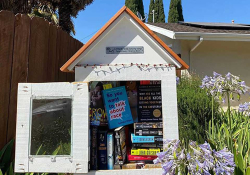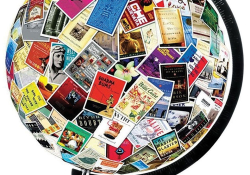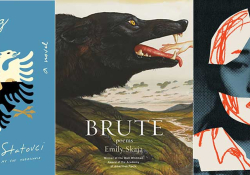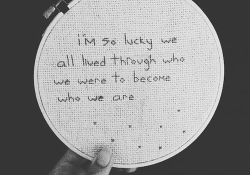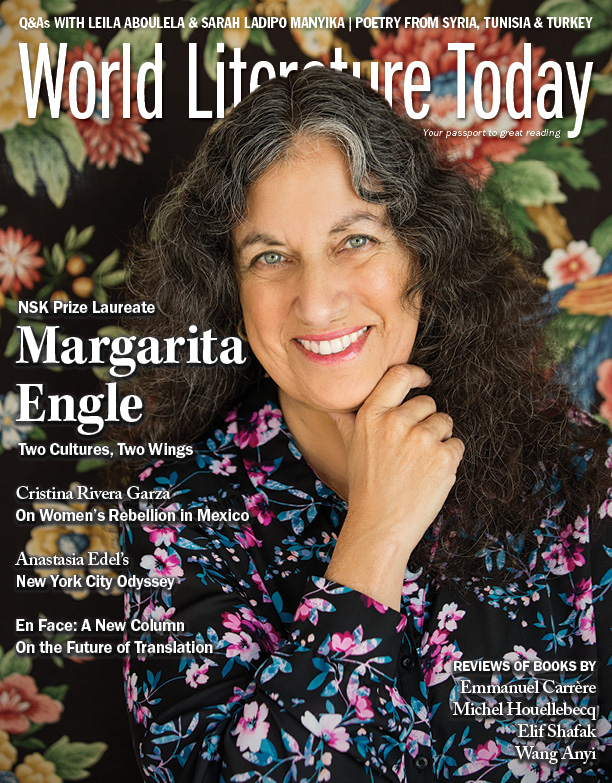Author Playlists

YOU FIND YOURSELF looking for a new book to read. You pick up a novel with a captivating cover, nice. After the first few chapters the protagonist seems like an intriguing character about to go through dramatic development, good. You continue to take time out of your day to immerse yourself into this reality while also discovering a thrilling plot. This book was a great choice! About halfway through, the thematic elements make more sense, and you can’t wait to tell all your friends about your gold mine. But what if—and I don’t say this lightly—you could make this experience more engaging, entertaining, and better? How so? With music.
Lately, authors of literary novels are fusing music and literature. For instance, music can act as a backdrop for the novel, or it can be used for engagement to follow a plot. It can even be used by the author as inspiration and a guide for their writing. An excellent starting point is Largeheartedboy.com. The website “explores that spot in the Venn diagram where the two arts overlap.” It also features book reviews, music release lists, and interviews. My favorite section of Largehearted Boy has to be the Book Notes series, where authors create and discuss music playlists that relate in some way to their recently publish novel.
Other examples are available across the web, on social media, and even in print. Well-known music lover Haruki Mura-kami literally relies on music to write. One of Murakami’s most recent novels, Killing Commendatore, is an emotional read that can leave readers feeling the gloominess and sadness his book evokes (WLT, Nov. 2018, 68). Open Culture, a cultural and educational media site, offers a twenty-six-hour-long playlist featuring music from Killing Commendatore. While not uplifting, the tracks perfectly translate the somber and dreary theme of Murakami’s novel.
Laura Esquivel physically incorporates music in her novel The Law of Law, which includes a CD. Indicators on pages refer to specific tracks, signaling the points to pause and listen. This not only helps readers better appreciate the arias included in the book but also engages the audience in a way that wouldn’t be possible without music. With both of these examples, we see music acting as an artistic medium. The message authors want to convey sometimes can’t be fully described with words but can be felt through music.
My favorite novel at the moment to use music in this way has to be one by Marie Lu. Her latest book, Warcross, is a thriller surrounding one of my interests: video games. Lu introduces a realm of gamers who go head to head in the competitive sport of Warcross. The protagonist, Emika Chen, is one of the half-billion players who escape reality every day to come together to enjoy the video game. After accidentally hacking herself into the world championship tournament, Emika receives an invitation to Tokyo from the creator of Warcross himself. This opportunity could help Emika escape her debts and the troubles of living in the slums. Lu not only delivers a fun read for gamer fans but also incorporates inclusivity. Gaming might not catch everyone’s attention—some do not take the sport seriously even today—but the community has grown exponentially in the last decade, and young adults are finding careers through gaming. Lu uses Emika to show the importance of gaming for kids: an escape from a sometimes-uncontrollable reality. Before the release date, Marie Lu posted the playlist that helped inspire her writing on Twitter. The list includes actual video game soundtracks, songs from video game–inspired movies (Tron), and even a soundtrack from the hit series Stranger Things. I found myself enjoying the upbeat tracks, and they all perfectly represent the realm of Warcross.
